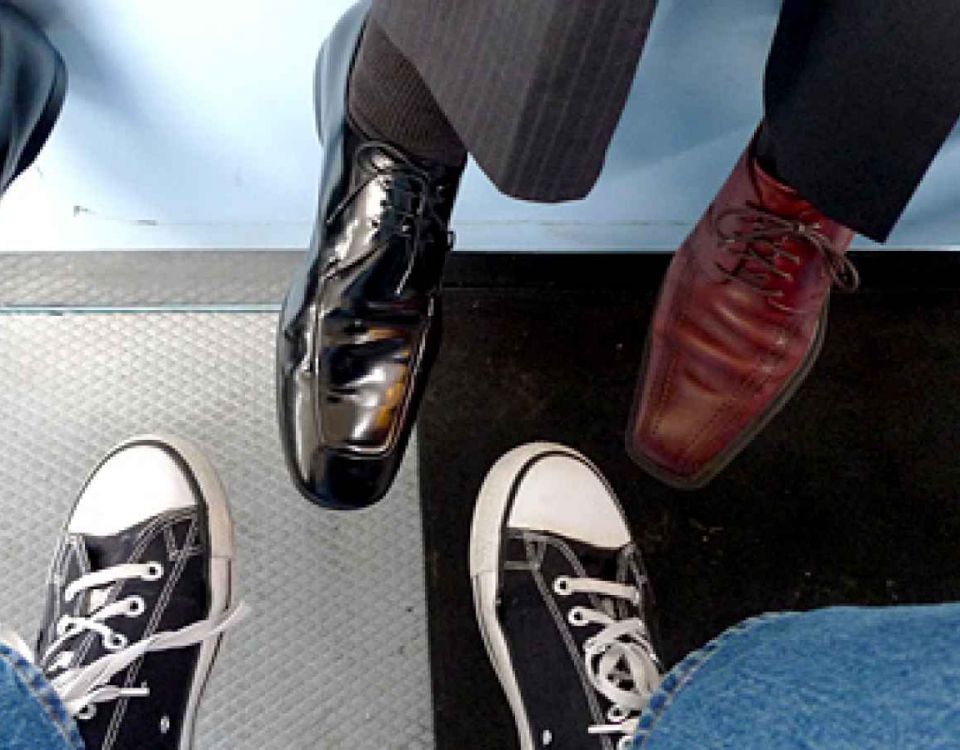Who Makes A Better Leader – An Introvert or Extrovert?

Free Technical Report Addresses Validity & Effectiveness of SOCIAL STYLE
5 July 2017
Are Women More Emotional Than Men? — STYLE Distribution by Gender
5 July 2017Many of the characteristics synonymous with “extrovert” are also the same traits we often associate with someone destined for leadership. Outgoing, charismatic, communicative, and socially confident. We naturally think that those who are more inclined to work in a social setting and who are energized by interactions are better suited to work in a role of leadership.
Introverts, on the other hand, we deem as shy, quiet, modest and cautious. They are recharged through solidarity and are less likely going to dominate a conversation or strive to be the center of attention. Some of you might already be thinking, “Hey, I’d rather work for that person! I think they’d make a better leader than an extrovert.”
So which personality type makes a better leader?
The answer is neither… or both.
How Personality Affects Management
As discussed on National Public Radio’s Marketplace program, research from University of Pennsylvania’s Adam Grant looked at the connection between personality type and management style. Grant and his colleagues studied a national pizza chain and compared the profitability of introverted managers and extroverted managers over many months. What they found was no difference in the profitability of the extrovert’s stores compared to those led by an introvert.
According to Grant, “It turns out that introverts and extroverts are effective in leadership roles under different conditions. So if you have really passive employees — people who are waiting for direction from above, they’re looking to be told what to do — extroverts are great at providing a vision and a strategy and energizing them to step up and contribute. And we found indeed that extroverts, when they had passive employees, their stores were about 16% more profitable than introverts’ stores. But what if you have proactive employees who take initiative to bring new ideas, to make suggestions, to come up with better ways of getting work done? Under those circumstances, we actually found that introverts brought in 14 percent higher profits.”
So does this mean you should have every member of your staff fill out a personality assessment, that way you can pair the extroverted staff with the introverted leader, and vice versa?
No.
Leadership Success is Linked to Versatility
Preparing your leaders for ultimate success comes from helping them to be Versatile. Versatility is the ability to build effective relationships with people of varying preferences. It’s a core element of SOCIAL STYLE, the leading interpersonal skills model. SOCIAL STYLE goes beyond just personality. It helps people understand their own behavioral preferences and those of others. By understanding those preferences, people can adjust their behavior to make others more comfortable and more productive. Learn more about SOCIAL STYLE for managers here.
SOCIAL STYLE is our natural, behavioral patterns that are determined by how we achieve success, and also what motivates us, what drives our needs, and what are our hot-buttons. It is based on over 60 years of research and is the world’s leading Behavioral Style model. Our Style is determined by where we fall on two spectrums, our assertiveness vs. responsiveness, and if we are more emoting or controlling. Watch the video below to learn more about SOCIAL STYLE.
SOCIAL STYLE and Versatility training teaches us how to accommodate to the Styles of others, and also, adjust our own behavioral preferences, to appeal to those we are managing. Versatile leaders supply companies with the ability to attain ultimate success, regardless of who is leading or who is being led. Whether leaders are introverts or extroverts, or whether they are Driving or Amiable Style people, high profits and an effective working unit are the outcomes of SOCIAL STYLE understanding.
- Managers with high SOCIAL STYLE skills are 27% better at managing conflict
- 81% of managers trained in SOCIAL STYLE say it makes them more effective as a manager and coach
- A study at a multinational defense contract found that managers with high Versatility are much more likely to support diversity and inclusiveness efforts
By evaluating other’s working preferences and behavioral styles, SOCIAL STYLE training gives us the insights to adjust our own leadership Style to bring out our employees’ greatest potentials. For example, with an understanding of Versatility, an introverted leader would be able to recognize a passive employee and their need for enhanced motivation and guidance.
On the flip side, an extroverted leader, with Versatility training, would be able to look internally and realize when they need to be more open to new ideas from all levels of the company, and step aside from their inclination to dominate meetings or be assertive in only pushing their ideas to the front.
To learn more about how SOCIAL STYLE can enhance your managers and leaders effectiveness click here.
TRACOM offers SOCIAL STYLE programs and assessments specifically for managers and leaders. The programs use managerial norms and are also available in many languages and international norms. Learn more here.
Check out this Success Story which discusses the use of TRACOM’s SOCIAL STYLE Model as a central focus of the Leadership and Management Courses, as well as the Business and Communication courses offered at Boise State University.
Learn how to create more effective managers through this research study which found that 84.8% of executives have witnessed an executive-level leader fail or derail due to poor interpersonal skills.
Read a related blog here – Quiet Leaders: Do They Have to Work Harder?







